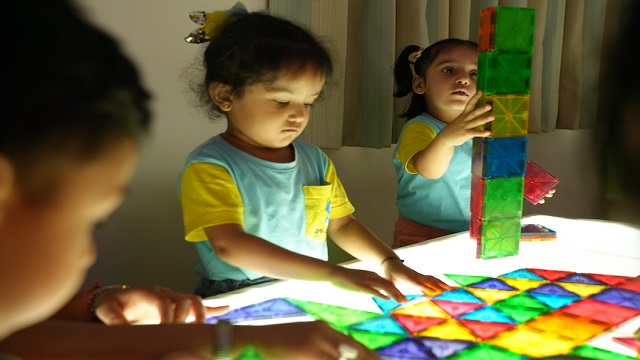Forcing children below 3 years into preschool is an illegal act: Gujarat High Court
Gujarat HC has declared that parents who compel children below the age of three years to attend preschool are engaging in an "illegal act."
Gandhinagar: In a recent ruling, the Gujarat High Court has declared that parents who compel children below the age of three years to attend preschool are engaging in an “illegal act.” This pronouncement came as the court dismissed a series of pleas challenging the Gujarat state government’s decision to set the minimum age limit for admission to Class 1 in the academic year 2023-24 at six years.
The parents who filed the petitions had enrolled their children in preschools before the youngsters had reached the age of three.
The division bench, composed of Chief Justice Sunita Agarwal and Justice N V Anjaria, made the clear statement in their recent order: “Forcing children to go to a preschool below the age of 3 years is an illegal act on the part of the parents who are petitioners before us.”
Furthermore, the court emphasized that the petitioners could not seek leniency, as their actions were in violation of the Right to Education Rules, 2012, and the Right to Education Act, 2009.
Citing Rule 8 of the RTE Rules, 2012, which pertains to admission procedures in preschools, the court underlined that no preschool should admit a child who has not completed three years of age by June 1 of the academic year.
The children whose parents initiated the legal challenge had been admitted to preschools before turning three, which is the minimum age required for preschool admission as per the RTE Rules, 2012. These rules have been in effect in Gujarat since February 18, 2012.
The parents’ legal representatives argued in court that fixing June 1 as the cut-off date for the current academic year would deprive approximately nine lakh children in the state of their right to education in the current academic session. They sought the court’s intervention to accommodate children who had completed three years in preschool but had not yet turned six by June 1, 2023, for the current academic year.
The court, however, rejected this argument, stating that the parents’ assertion that their children were school-ready because they had received three years of elementary education in preschool during the 2020-21 academic session did not persuade the court.
The court clarified that, according to Section 2(c) of the RTE Act, 2009, a child of six years is eligible for admission to a neighborhood school to exercise their right to free and compulsory education until completing their elementary education.
The court asserted that the right granted to a child by the constitutional provision of Article 21A and Section 3 of the RTE Act, 2009 begins after they turn six years old. A comprehensive reading of sections 2(c), 3, 4, 14, and 15 of the RTE Act, 2009, made it clear that a child above the age of six cannot be denied education in a formal school.
The National Education Policy, 2020, has recognized that children under six years of age require ‘early childhood care and education.’ According to the NEP, more than 85 percent of a child’s cumulative brain development occurs before the age of six, underscoring the crucial importance of appropriate care and brain stimulation in the early years for healthy development and growth.




 Ms Kalinga
Ms Kalinga